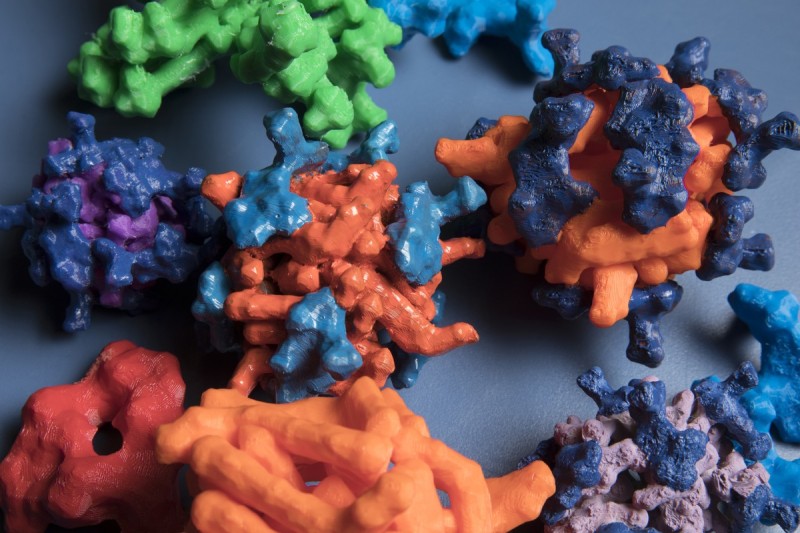
3D-printed models of a cancer-fighting nanoparticle. Faculty in the cancer engineering program are exploring the use of nanotechnology and biomaterials for imaging, drug delivery, sensors, and other applications.
Students begin their full-time dissertation research at the beginning of their second year of the program. They are expected to present their thesis proposals by April 15 of the second year.

Dr. Karuna Ganesh engineers organoid models to study metastasis.
During the second year of study, students take part in the Current Topics Journal Club, along with Graduate Student Seminars and Student Chalk Talks, which continue throughout their graduate careers.
Students may also select a clinical mentor, someone from the attending staff of Memorial Hospital who is involved in patient-oriented research. The choice will be guided by the student’s thesis project.
Students can meet regularly with their clinical mentor, who directs the student in participating in hospital-based academic activities such as grand rounds and conferences with pathology and disease management teams.
The average time to degree for the CEGP program will be between 5 and 6 years.
